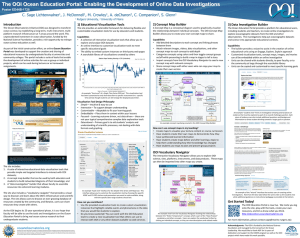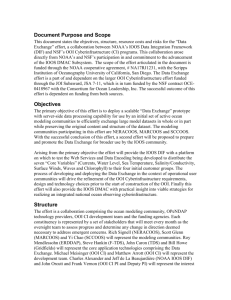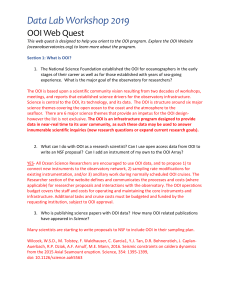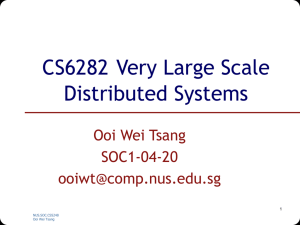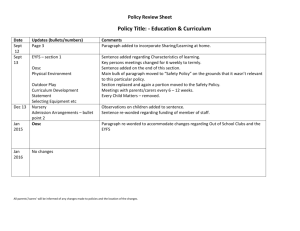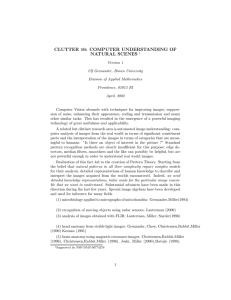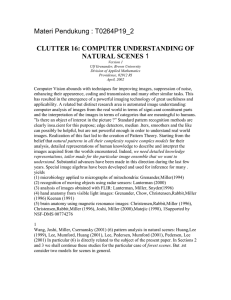OOSC Recommendations May 16, 2012
advertisement
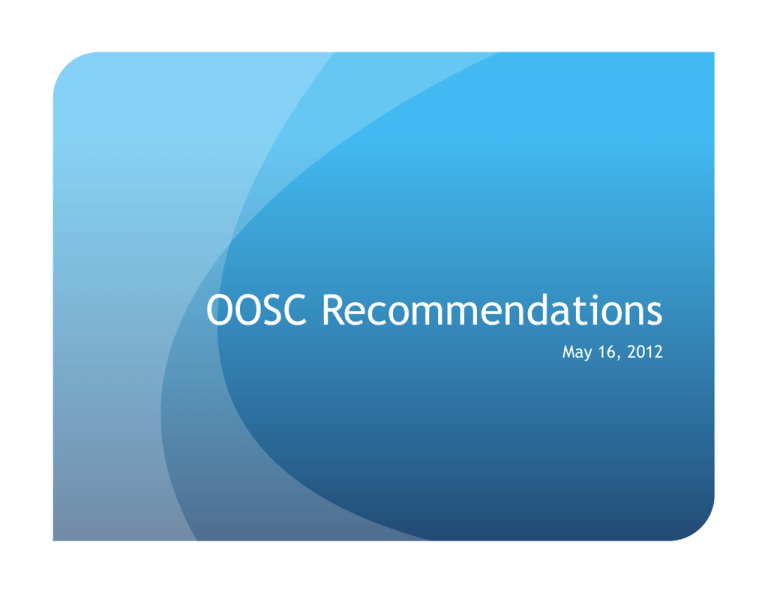
OOSC Recommendations May 16, 2012 Recommendation Provide Early Career Scientist Opportunities Climate Studies – Sampling rate to Climate Studies: organize a workshop that brings climate scientists and modelers together to address this issue and provide recommendations on the sampling requirements and rates. Data Management programs – So engage the current cyberinfrastructure – HOTS, BATS, Neptune, ARGO Explore the feasibility of performing a full system test (one year) of a Global Array in a location near the US for accessibility if the need for repair arises. Additionally, the first deployment of a Global Array should not be in the Southern Ocean. Recommendations A Cooperative Approach to Science Research at Pioneer Array - Consider an approach for collaborative science planning for use of the Pioneer Array that will optimize it’s use for its planned 5 year deployment period. OOSC recommends that NSF draft and distribute a “Dear Colleague” letter announcing the opportunity to submit proposals for science use of OOI. Timeline- ASAP. Expand external community involvement in OOI design reviews. The glider operations should have a recompete clause. The framework for relocation of the Pioneer Array should be developed now. Recommendation Data Quality – Insure that data quality is of highest priority. User community confidence in data quality is critical. Engage data Recommendation: Hold Science Workshops (2 per year) Organized through UNOLS and OOSC with OOI collaboration Engage the broader community Participation by other UNOLS Committees Incorporate an early career/student component ( poster sessions, etc Identify Workshop Theme (s) by (refer to OOI science plan) Participation by other existing ocean observing systems - HOTS, BATS, MARS, etc First Workshop – tied to Coastal - Gliders Science Workshop Theme - Coastal Ocean Dynamics and Ecosystems Identify champions/steering committee – Jim Nelson Multidisciplinary Facilitator - “Knowledge Innovation” Location – marine lab, West Coast Organization support – UNOLS Office Hands-on Demos – Glider Data Linking the OOI Infrastructure to science and other applications Science Workshop Participation by Data groups: NODC, NOAA Fisheries Speed Dating Model – provide participant introductions. Goals Excite them about the capabilities of OOI Team building - Foster science user collaborations/partnerships Brainstorming: Make software tools that make it easy to download the OOI data How can OOI data be used for alternate communities – fisheries. Provide berths on ships servicing OOI. Application process Coordinated through OOSC Critical = water sampling during the cruises that install the OOI infrastructure is essential Calibration Provide infrastructure for additional sensors. Website for proposal prep – details of how to use OOI (example – MARS) Brainstorming Provide funds for young investigators Evaluate Neptune Program – lessons learned Science PM for ocean observing assets at NSF maybe part time Create vision of NSF and US ocean observing assets and hoe we use them. Webinar – broadly announce Dear Colleague letter – announce the proposal process Brainstorming Chief scientist training program Community science workshop that highlights the exciting science that is going on in other observatories Grad student funding for using the infrastructure There is going to be a way of engaging nonoperator, non-construction folks. Re-compete Pioneer Array Brainstorming NUDE or Noodle - a “Year for Ocean Observing” Tie the commissioning to a big event. NPR – Earth and Sky segment. A couple minute segment on ocean observing. Radio Lab WNYC A better avenue for getting user groups active and engaged. Outreach mechanisms that reach all generations. Action Items Review OOI User Access Screen Designs Review Irminger Sea project paper and provide recommendation on whether or not to deploy a partial Global Array. OOSC webpage with a brief description of what OOSC is
